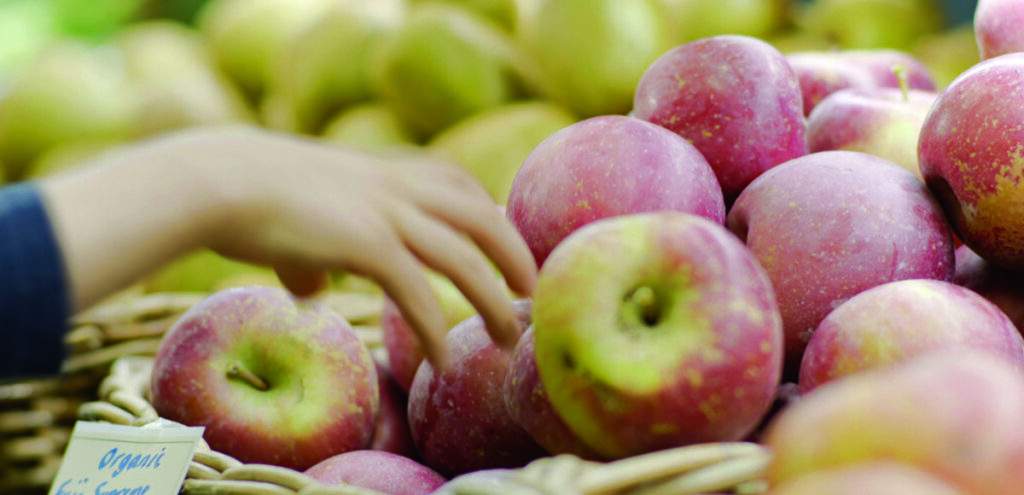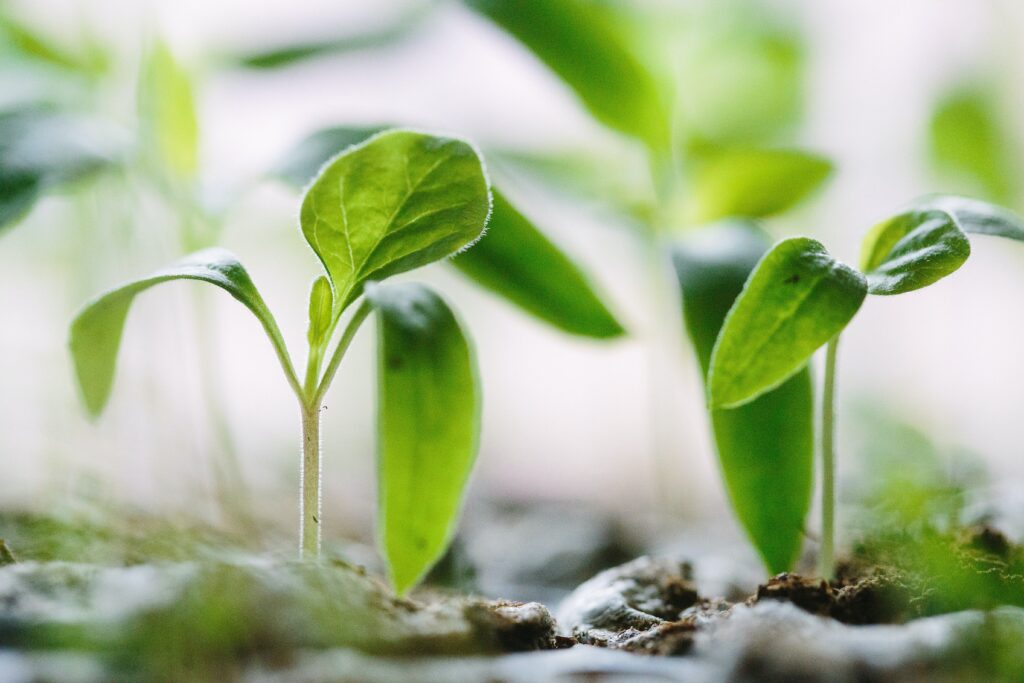
Organics supports the future of our food, climate action and sustainability. Organic certification is the foundation that reinforces this movement.
The organic industry continues to grow in NZ, as well as globally. More farmers are turning to organic practices and consumer interest is increasing. Learn more about what organics means, the difference certification makes, the state of organics in NZ, and how you can support the organic movement.
What does organic mean?
‘Organic’ has been defined by the Ministry of Primary Industries (MPI) as – avoiding or excluding the use of synthetic fertilisers, pesticides, antibiotics, growth modification and irradiation.
However, many believe organic agriculture is more than that. It is a holistic approach to farming that prioritizes the long-term health of the soil, environment, animals, and workers. With sustainability in mind, it often requires innovative techniques and the tenacity to find natural methods to feed crops, control pests, and fight disease.
Organic agriculture is a systems approach to production that is working towards environmentally, socially, and economically sustainable production. It utilises crop rotation, animal manure and plant compounds as fertiliser, minimal hand weeding and innovative, natural pest control.
Organics IS climate action.
The world is faced with the urgency of taking action to limit climate change. With a goal of supporting the health of the planet, here are 3 reasons organic farming offers a solution to climate change:
- Healthy soil sequesters carbon and is vital to slow climate change.
- Organic farming builds soil health and cuts nitrogen pollution.
- When you purchase organic products, you’re supporting farmers and companies who have pledged their support to the earth.
What is regenerative agriculture? Is it the same as organic?
Regenerative agriculture (regen for short) is a long-term commitment to environmental sustainability. It combines the highest standards of organic farming, animal welfare and social fairness, with a distinguishing feature of restoring healthy soil. Regen is considered a viable solution to some of the major concerns around topsoil, water pollution, food shortage and climate control. Find out more here.
While organic farming and regen both look after the soil and ecosystem, how they practice farming can differ. Organics is strictly governed, where regen is a farmer-lead movement with core principles to guide the way. Is there an opportunity to come together and move forward? Read more here.
Organic Certification – what is it and why is it important?
Organic standards can vary depending on the certifier; however, the universal features are to restrict the use of synthetic pesticides or herbicides, prohibit genetic modification (GMO’s), verify animals are regarded humanely and ensure rural communities and workers are treated fairly.
Organic certification provides assurance to consumers, as well as ensures farmers and producers have the support they need to maintain a high standard of organic principles. A certification logo lets consumers quickly identify products that have been produced according to strict organic standards from soil to shop.

What is the difference between ‘organically grown’ and ‘certified organic’?
In New Zealand, the word ‘organic’ or ‘sustainable’ can be used freely. While some people will adhere to organic principles, this may not always be the case. This leaves consumers in a tricky position, not knowing how ‘organic’ the product really is.
Certified organic products and facilities follow strict organic standards that have been checked, audited, and certified by a trusted certification agency. Organic certification assures the consumer that the product meets regulated organic standards.
Some farmers claim produce is organically grown, as they are not certified. This creates the assumption that organic practices were followed but does not give assurance to the consumer that it meets an adequate standard. There are a variety of reasons famers may not get certified, such as the cost is prohibitive, or their market does not require it.
While a farm is in the process of converting from non-organic to organic farming practices, the term transitional organic is used. The process to full certification takes 3 years of meeting organic standards, to ensure the soil has been cleared of prohibited substances.
As interest in organic food grows, more and more consumers are looking for the assurance of certification to guarantee they are getting what they are paying for.
Is there an organic standard in NZ?
Currently, there is no government-mandated national organic standard. OANZ (Organic Aotearoa New Zealand) has been campaigning for such legislation for many years. This would create more clarity and assurance for NZ consumers when purchasing organic products, as well as, in international trade.
New Zealand’s Parliament is in the process of reviewing legislation to protect and regulate the organic sector, which is referred to as the Organic Products & Production Bill.
The Organic Products and Production Bill passed its 3rd reading on Thursday 30th of March, 2023. This is a landmark success and brings New Zealand a step closer to a robust and internationally recognized organic standard. Find the press release and hearing here.
This has progressed over years and Tiffany Tompkins, CEO of Organics Aotearoa New Zealand (OANZ), the peak body for the organic sector, shares her view:
The new law is driven by growing demand for organic products both here and overseas. Consumers want safe, healthy food with high animal welfare standards, that regenerates the land and waterways, and mitigates climate change. Organics ticks all those boxes.
Meet the organic certifiers of NZ.
Currently, New Zealand has five private organic certifiers.
- AsureQuality (AQ) provides organic certification for producers, processors and retailers.
- BioGro certifies all sectors within the organic industry, including farms, livestock, wine, apiary, processing, retailers, manufacturers and more. BioGro certify farmers, producers and manufacturers to show that every aspect of their process is compliant to organic standards.
- Demeter provides biodynamic certification, which also requires organic certification
- OrganicFarmNZ (OFNZ) is designed for the small-grower to be low-cost, educative and supportive, who only sell within New Zealand. OFNZ’s mission is to support local organic food production. It is food grown by locals for locals.
- Hua Parakora is the world’s first indigenous organic verification, which is a Māori system for Kai Atua (Pure Foods).
When an organic product is imported into NZ, an overseas organic certification can be found on pack. Some of the well-known agencies are USDA Organic Certification, EU organic regulation, and ecocert which does a variety of global certification programs.
What does the certification process entail?
The certification process starts with passion and determination, an organic management plan and then an annual audit. The auditor must visit the farm, packing facility, production site, warehouse, retail store to ensure the procedures meet organic standards and requirements.
The process will be different depending on what aspect of a business is being certified. A universal approach will include stages such as: developing an organic system plan, implementing the plan, engage with a certifying agent to review the plan, and then get the facility and systems audited to provide results, feedback, and approval. Many certifiers now offer step by step assistance and applications online. However, an in-person, on site audit happens annually.

Choose organics for the planet.
Organic farming provides a sustainable solution to agriculture, while also supporting a thriving future for people and planet. This includes: supporting healthy soil, clean waterways, provides climate action, better yields, safe food and a sustainable future. For further learning, get the details in our blog 5 Reasons to Choose Organics for the Planet.
For a few tips and tricks on how to include more organics in your diet, while sticking to a budget, check out our blog, 7 Simple Steps to Going Organic.



